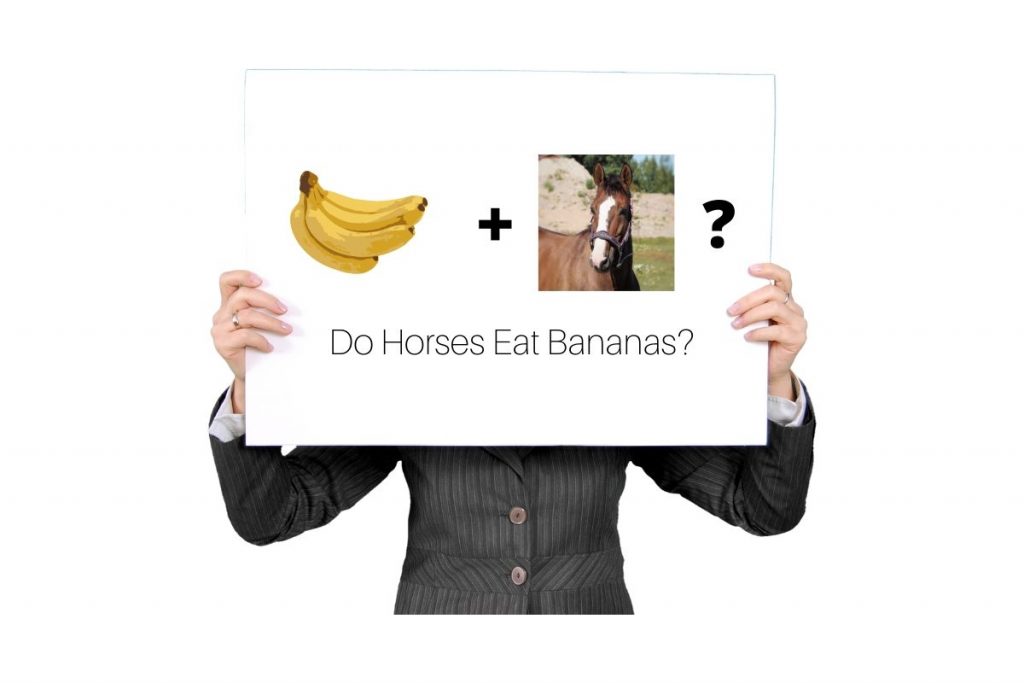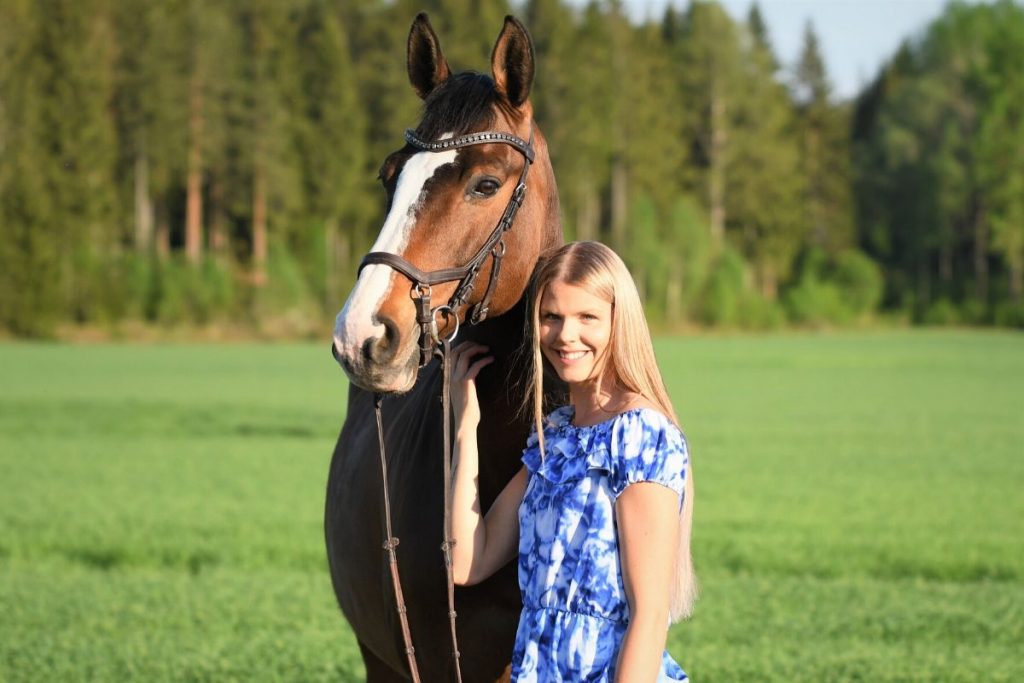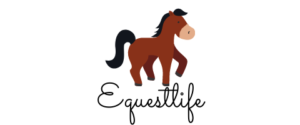For the most part, horses eat grass, hay, grains, and oats. But, just like humans, horses also enjoy snacks. Most likely, you will see them eating a healthy snack like an apple or carrot, but there are many snacks that horses can enjoy.
Do horses eat bananas? Yes, horses do eat bananas. However, every horse is different, and some may like them more than others.
When taking care of a horse, it is important to know what foods they can eat. It is okay to give a horse a treat or snack, but you need to make sure that you are not giving them anything that can be harmful. In this article, you will learn about what horses can eat, which foods you should not feed your horses, and how to keep your horse healthy.
Do Horses Eat Bananas?
Yes, horses do eat bananas; however, horses have food preferences just like humans. Some of your horses may prefer ripe bananas, while others prefer unripened ones. Additionally, some horses may like the peel on the banana, and others may rather the banana with the peel removed.
Bananas are a good source of potassium, and they are a healthy addition to your horse’s diet. Many competitive riders give their horses bananas before a big race or event to help them perform their best.
Most fruits are safe to feed to your horse in small amounts. If you find that your horse likes bananas, then you can incorporate them into their diet as snacks or treats. Remember that fruit is meant to be a snack, not a meal. Giving your horse too many bananas could result in digestive problems.

What Other Fruits and Vegetables Are Safe for Horses to Eat?
Many horse owners like to incorporate a variety of fruits and vegetables into their horse’s diet. If you have a horse that is a poor eater, fruits and vegetables can be used as treats or rewards to encourage them to eat their food. Apples and carrots are among the most popular and accessible fruits for horses.
Other fruits and vegetables that you can give to your horse include:
- Swedes
- Turnips
- Beetroot
- Celery
- Oranges
- Grapefruit
- Bananas
Broccoli and cabbages are okay only in small amounts; too much of these greens can cause severe gas in a horse. Most fruits, even those not listed, are safe for horses but should be given in small amounts, and all pits should be removed.
All fruits and vegetables should be cut into small strips before being fed to your horse. This will help avoid choking. Additionally, when giving your horse fruits and vegetables, make sure that all the food is mold-free. Moldy food can be deadly to a horse.
Other Treats That Are Safe for a Horse
Fruits and vegetables are the healthiest treats to give your horse, but there are a few other safe treats that can be given to your horse on occasion.
Some treats that can be occasionally given to your horse include:
- Sugar cubes
- Peppermints
- Sunflower seeds
- Store-bought horse treats
All snacks and treats should be given to horses occasionally and not as a replacement for their meals. A horse’s main source of food should be grass and its feed.
What Foods Are Harmful to Horses?
Horses have sensitive stomachs, so it is vital to know which foods are harmful to them or cause them discomfort. It is also important to check their hay and make sure it is not moldy. Horses can also be affected by sudden changes in diet or too much grain and grass.
The following things should not be fed to horses.
Lawn Clippings
Even though horses eat grass as their main source of food, it is not safe to feed them your lawn clippings. These could contain chemicals or harmful plants that could be deadly to a horse.
Nightshade Plants
Nightshades are also known as Solanaceae. They are a family of flowering plants that have toxic peels, stems, and leaves.
Some nightshade plants are:
- Potatoes (sweet potatoes are safe)
- Tomatoes
- Eggplant
- Peppers
These plants also contain atropine, which can affect the horse’s nervous system.
Chocolate
Chocolate contains theobromine, a chemical that can be deadly to horses. Even small amounts should be avoided because it can cause stomach discomfort and issues.
Persimmons
The seeds of the persimmon fruit can form a large, sticky mass that can become lodged in your horse’s digestive system and cause them to have colic. Make sure you do not have any persimmon trees on your property. A horse can easily eat the fruit that has fallen from the trees.
Avocado
The avocado flesh itself is safe for horses, but the skin, pit, and leaves of an avocado plant are poisonous to horses.
Dairy Products
An adult horse’s digestive system does not digest dairy products well, and, if ingested, they could give your horse diarrhea.
Bread
Bread becomes a large, sticky mass after they are ingested. They can cause blockages in a horse’s gastrointestinal tract.
Pitted Fruits
Make sure no fruit is given to your horse that has a stone or pit in it. These can cause your horse to choke. Horses cannot throw up, so choking can be deadly for a horse.
Note: Avoid feeding stranger’s horses. The horse could have a dietary restriction that you do not know about, and the food could cause them discomfort or more serious health issues.
Ways to Ensure Your Horse is Maintaining an Active Healthy Lifestyle
Horses require more than just a nutritious diet to maintain their health. If you choose to own a horse, you must know how to take care of all their needs. The following tips can help you ensure that your horse is completely happy and healthy.
Try to Eliminate Their Stress
Horses are naturally a nervous animal, so it is a good idea to create a stress-free environment for your horse.
Some ways to create a stress-free place for your horse are:
- Have another horse companion for them or board them with other horses.
- Be patient when riding or training them. If needed, seek professional help instead of trying to figure it out on your own.
- Slowly introduce them to new things.
- Try not to change their routine suddenly.

Schedule an Annual Vet Exam
It is important to make sure that your horse regularly sees a veterinarian that specializes in caring for horses. Your horse might seem healthy to you, but a qualified vet will be able to notice things that you don’t.
It is also important to keep up with your horse’s vaccinations. Your veterinarian will know the vaccines your horse needs depending on the area you live in and your horse’s health.
Exercise Your Horse Daily
Horses need to be active daily. They should not be kept in their stalls all day. Daily activity will also help keep your horse at a healthy weight. Being overweight can cause your horse to have additional health problems and could eventually limit their mobility.
Take Care of Your Horse’s Hooves
Horses are on their feet all day, so it is important to make sure their hooves are taken care of. Make sure to find a qualified furrier, a person who trims and shoes horse’s hooves. They will also be able to give you instructions on how to keep your horse’s hooves healthy.
In Conclusion
If your horse wants a banana, give them one! Healthy snacks are an important part of keeping your horse well-fed and happy. However, a proper diet is not the only thing that a horse needs to thrive. Make sure you are paying attention to all aspects of your horse’s health, and they will remain strong and healthy for years to come!
